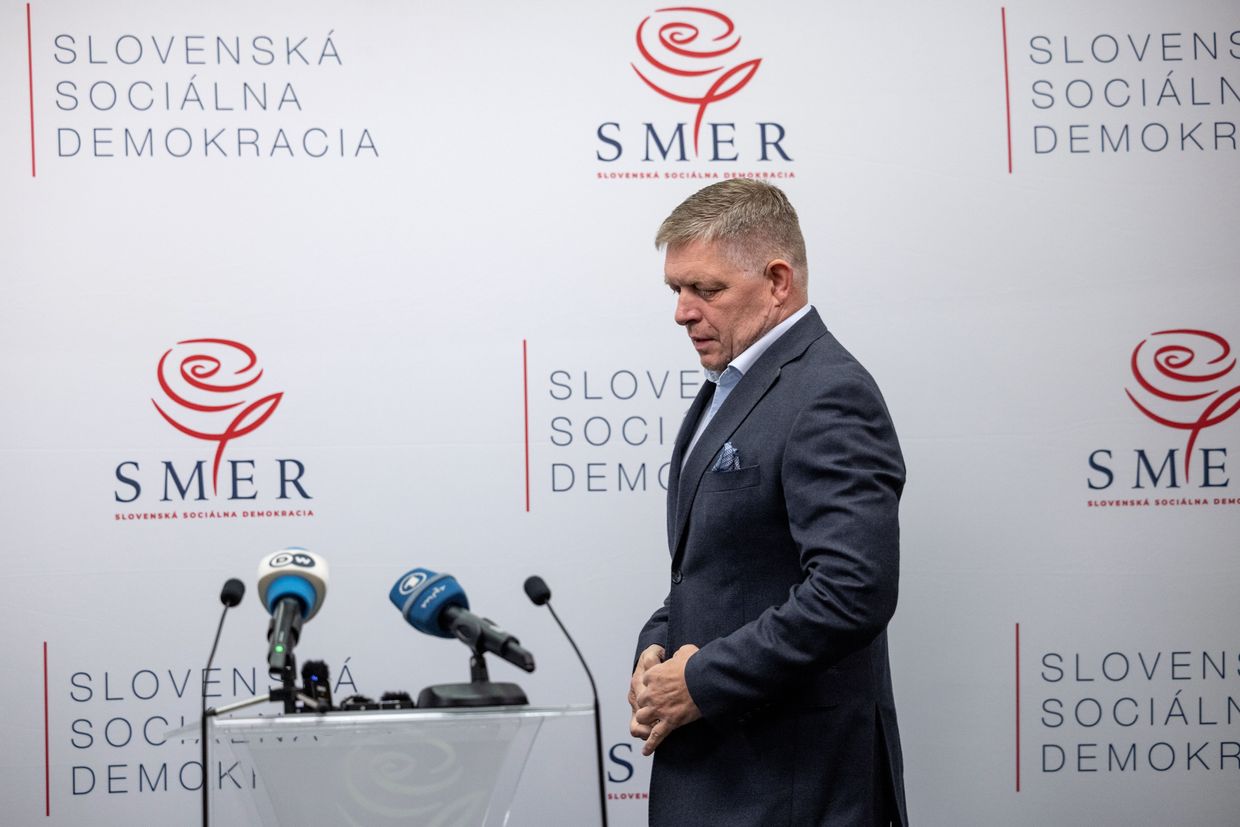Fico says he won't hinder arms sales from Slovak companies to Ukraine

Slovakia's Prime Minister Robert Fico said his government will not prevent arms sales from Slovak companies to Ukraine, the Slovak news outlet Dennik N reported on Nov. 6.
This implies that Bratislava's decision to halt arms supplies would concern only the weaponry from the Slovak military's current stocks, not newly produced arms provided on a commercial basis.
"If some company wants to produce arms and export them somewhere, nobody is going to prevent that, of course," Fico said after meeting Defense Minister Robert Kalinak, the prime minister's colleague from the ruling left-populist SMER (Direction) party.
Fico, whose party won Slovakia's parliamentary elections running on Ukraine-skeptic platform, said earlier that his country would halt military supplies to its besieged eastern neighbor.
When asked by a foreign journalist in Brussels on Oct. 27 whether Fico would uphold his promise to cease arms supplies to Ukraine, the prime minister clarified that "when it comes to weapons from the Slovak military stocks, the government will not continue in this policy."
Notably, Fico did not make a distinction between supplies from Slovakia's current arsenal and commercial arms sales during his electoral campaign, the Slovak outlet SME reported.
SME also pointed out that the Slovak state-owned company Konstrukta Defence has a standing contract signed under the previous government last year to deliver 16 Zuzana 2 self-propelled guns to Ukraine.
Breaching this contract while it is already being carried out could threaten the firm's reputation and cause defense industry layoffs, the outlet noted.
Speaking to journalists, Fico also said that Slovakia would continue supporting Ukraine on a humanitarian level, for example, in demining, medical assistance, or civilian reconstruction efforts.
Under the previous governments, Slovakia has provided Ukraine with extensive humanitarian and military support, including artillery, fighter jets, and other support.
However, experts point out that Bratislava has largely provided Ukraine with what it could from its standing military arsenal, implying that the flow of supplies would soon cease regardless of Fico's decision.












